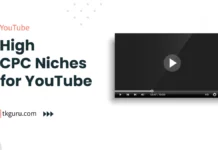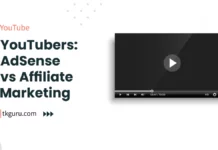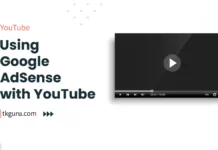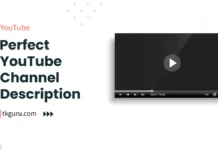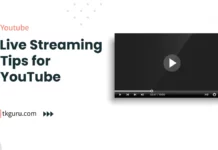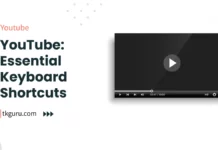Advertisements
Ratings
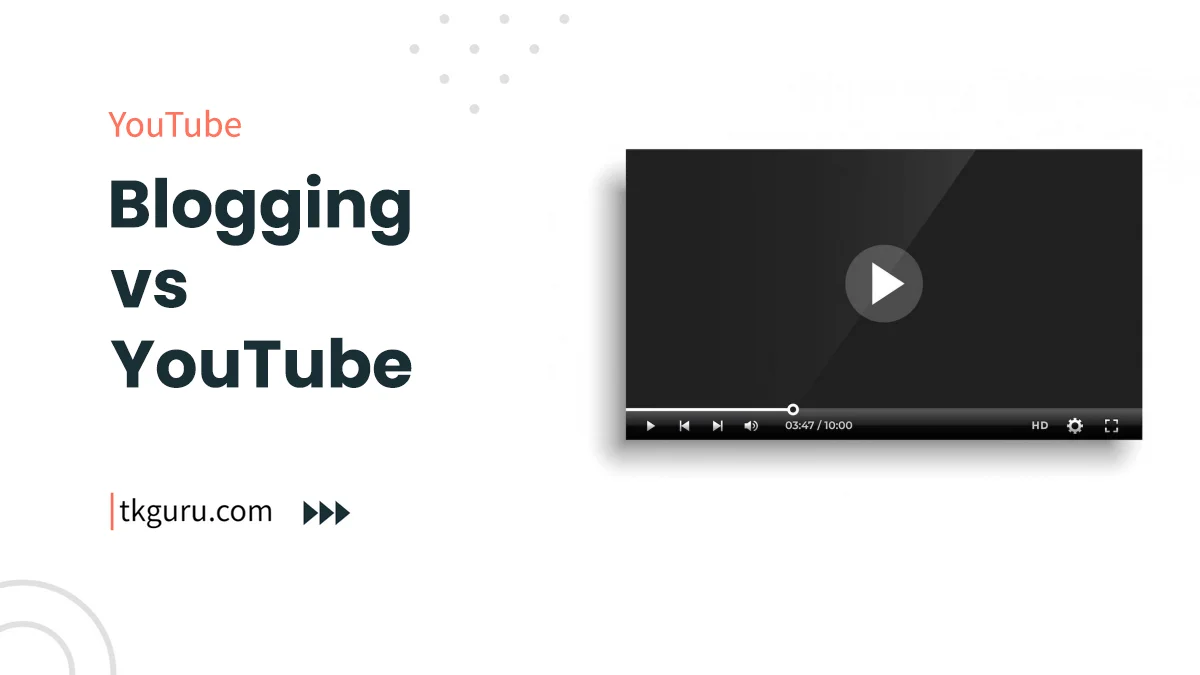
Blogging vs YouTube 2024 – In today’s digital age, content creation has taken center stage, and two powerful platforms have emerged as frontrunners: blogging and YouTube.
Both mediums offer unique avenues for creativity, expression, and engagement with audiences.
However, for individuals looking to monetize their content, the question arises: which platform is more profitable?
In this article, we’ll delve into the pros and cons of both blogging and YouTube to help you make an informed decision based on your goals, preferences, and resources.
Contents
1. The Rise of Blogging
Advantages of Blogging: Blogging has been a cornerstone of online content for decades, and it offers several distinct advantages:
- In-Depth Information: Blogging allows creators to dive deep into topics, providing comprehensive and well-researched information to readers.
- Niche Targeting: Bloggers can cater to specific niches, attracting dedicated audiences who are passionate about the subject matter.
- SEO Benefits: Written content lends itself well to search engine optimization (SEO), driving organic traffic from search engines like Google.
- Monetization Flexibility: Bloggers can explore various revenue streams, including display ads, affiliate marketing, sponsored posts, and e-commerce integration.
Monetization Strategies for Blogging: Monetizing a blog involves diversifying revenue sources:
| Monetization Method | Description |
|---|---|
| Display Ads | Earning through ad networks like Google AdSense. |
| Affiliate Marketing | Promoting products and earning commissions on sales. |
| Sponsored Posts | Collaborating with brands for sponsored content. |
| Selling Digital Products | Offering e-books, courses, or downloadable content. |
The long-term potential of building a loyal audience and establishing a personal brand can lead to sustained income.
2. The Power of YouTube
Advantages of YouTube: YouTube’s visual and audio engagement sets it apart, offering the following advantages:
- Visual Impact: Video content captures attention and resonates with viewers on an emotional level.
- Global Reach: YouTube’s worldwide audience provides opportunities for rapid growth through sharing and subscriptions.
- Content Variety: Creators can explore diverse content formats, from vlogs and tutorials to reviews and entertainment.
- Ad Revenue: YouTube is integrated with Google AdSense, allowing creators to earn from ads displayed on their videos.
Monetization Strategies for YouTube: YouTube offers several avenues for generating income:
| Monetization Method | Description |
|---|---|
| Google AdSense | Earning from ads shown before, during, or after videos. |
| YouTube Partner Program | Qualifying for revenue-sharing and additional features. |
| Channel Memberships | Offering paid subscription tiers for exclusive content. |
| Merchandise Shelf | Selling merchandise directly from your YouTube channel. |
Additional opportunities include sponsored content, affiliate marketing, and crowdfunding through platforms like Patreon.
3. Evaluating Profitability
Factors to Consider: When comparing the profitability of blogging and YouTube, several factors come into play:
- Time Investment: Both platforms require time for content creation, but video production may be more time-intensive.
- Niche Selection: Your chosen niche can impact audience size, engagement, and potential revenue.
- Consistency and Quality: Regular posting and high-quality content are crucial for growth and monetization.
- Growth Rate: YouTube videos can go viral faster, but steady blog traffic can lead to consistent income.
Comparing Earnings: Let’s take a look at real-world examples of successful bloggers and YouTubers in different niches:
| Blogger / YouTuber | Niche | Monthly Earnings |
|---|---|---|
| Blogger A | Travel | $2,500 – $5,000 |
| YouTuber B | Technology Reviews | $3,000 – $6,000 |
| Blogger C | Food and Cooking | $1,200 – $3,000 |
| YouTuber D | Fashion and Beauty | $5,000 – $10,000 |
4. Challenges and Considerations
Blogging Challenges: Blogging comes with its own set of challenges:
- Traffic Building: Building and maintaining a consistent flow of traffic requires continuous effort.
- SEO Challenges: The evolving landscape of SEO algorithms can impact a blog’s visibility on search engines.
- Longer Ramp-Up: Blogs may take longer to establish authority and generate significant income.
YouTube Challenges: YouTube also presents challenges:
- Video Production: Creating high-quality videos requires equipment, editing skills, and time.
- Competitive Environment: Video content is highly competitive, requiring unique content to stand out.
- Algorithm Changes: YouTube’s algorithms can affect video visibility and growth strategies.
Conclusion
In the battle of “Blogging vs. YouTube: Which is More Profitable?” there’s no definitive winner. Both platforms offer substantial potential for generating income.
Your choice should align with your skills, interests, and resources. Consider your content creation preferences, target audience, and growth trajectory when making your decision.
The key is to focus on creating valuable content, building a dedicated audience, and exploring diverse revenue streams to maximize profitability on the platform of your choice.
In the end, whether you choose to write compelling blog posts or create engaging videos, your commitment to excellence and your audience’s needs will be the driving factors behind your success.
Blogging vs YouTube FAQs
What are the key differences between blogging and creating YouTube videos?
The key differences between blogging and creating YouTube videos include the format of content delivery. Blogging involves writing and publishing text-based content on a website, while YouTube involves creating video content hosted on the platform. Each medium has its own advantages and challenges.
Which is better for making money, blogging, or YouTube?
Both blogging and YouTube can be profitable, but the choice depends on your skills, content, and audience. YouTube tends to offer more opportunities for ad revenue, sponsored content, and merchandise sales, while blogging may rely more on affiliate marketing and product promotion. Some creators also use both platforms to diversify their income streams.
Is it necessary to choose between blogging and YouTube, or can I do both?
You can certainly do both! Many content creators use a combination of blogging and YouTube to reach a broader audience and maximize their online presence. This approach allows you to cater to different preferences, such as those who prefer reading articles and those who prefer watching videos.
Which platform is better for building a personal brand and online presence?
Both platforms are effective for building a personal brand and online presence. Blogging allows for in-depth, written content that can establish expertise, while YouTube enables you to connect on a more personal level through video. Your choice should align with your strengths and the preferences of your target audience.
What skills do I need to be successful in blogging or on YouTube?
For blogging, essential skills include writing, content organization, SEO, and digital marketing. For YouTube, you'll need video production skills, on-camera presence, video editing, and an understanding of YouTube's algorithms and audience engagement strategies. Both platforms benefit from skills in audience research and social media promotion. Ultimately, success on either platform depends on your dedication and the quality of your content.
| Web Hosting | Website |
| WordPress | Google Adsense |
| SEO | Affiliate Marketing |
| Blogging | YouTube |
Recent Posts
- Blogging vs YouTube: Which is More Profitable?
- High CPC Niches for YouTube: Maximizing Earnings with Lucrative Content
- AdSense vs Affiliate Marketing: Which is Best for YouTubers
- Using Google AdSense with YouTube: Monetizing Your Videos
Related Tags
Blogging vs youtube for beginners, youtube vs blogging earning, youtube vs blogging income reddit, blogging vs youtube reddit, blogging vs youtube in hindi, youtube vs blogging income in hindi, blog vs youtube vs podcast, blogging vs vlogging

